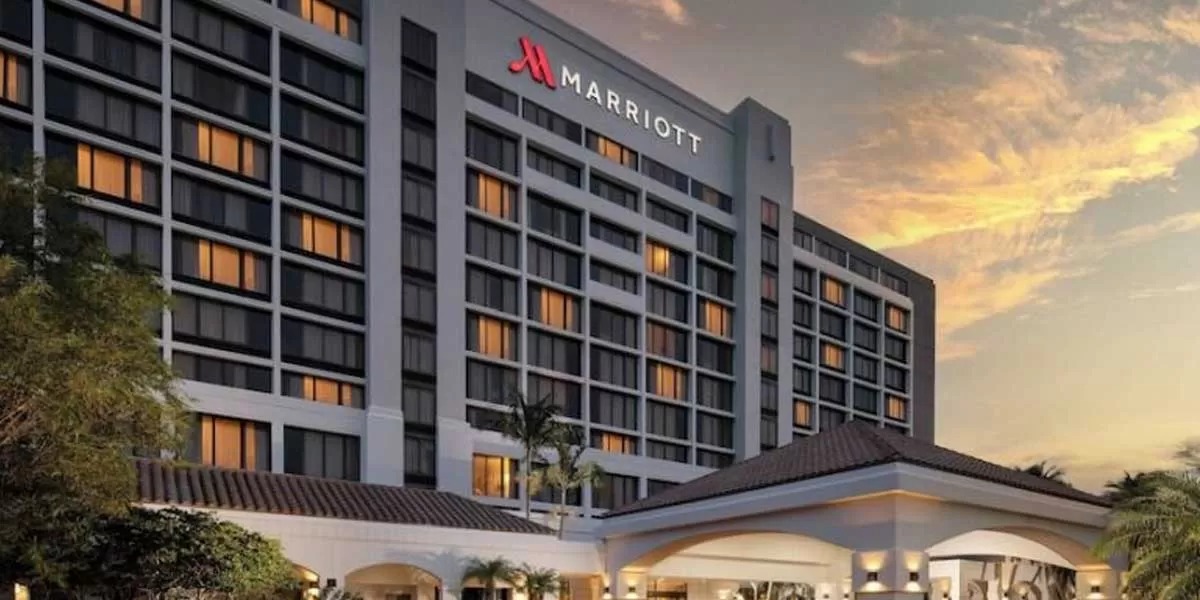 Image Source : Construction World
Image Source : Construction World
Marriott International has unveiled an ambitious plan to expand its footprint in India to 500 hotels by the end of this decade, signaling a deep commitment to one of the world’s fastest-growing hospitality markets. The announcement, made by Rajeev Menon, President of Marriott Asia Pacific (excluding China), underscores the company’s bullish outlook on India’s tourism, infrastructure, and consumption growth.
With over 150 hotels currently operational and 80 more in the pipeline, Marriott aims to more than triple its presence across the country. The expansion will span luxury, premium, and mid-market segments, with a strong focus on secondary cities, religious tourism hubs, and resort destinations.
Key Highlights From The Expansion Strategy
- Marriott plans to operate 500 hotels in India by 2030, up from 150 currently
- Over 80 hotels are already in the development pipeline
- Room inventory is expected to grow from 28,000 to 50,000 over the next five years
- The company is targeting double-digit growth in hotel demand across India in 2025
- More than 70 percent of recent signings are for luxury and premium properties
Growth Drivers And Market Focus
India’s hospitality sector is undergoing a transformation, driven by rising domestic travel, infrastructure upgrades, and increasing disposable income. Marriott’s expansion strategy is aligned with these macro trends and focuses on:
1. Religious tourism: Properties like the upcoming Katra Marriott near Vaishnodevi cater to spiritual travelers
2. Secondary and tertiary markets: Cities beyond metros are seeing increased demand for branded accommodations
3. Resort locations: Leisure travel is fueling growth in destinations like Goa, Kerala, and the Northeast
4. Business hubs: Continued investment in commercial corridors supports demand for full-service hotels
Menon emphasized that India could become Marriott’s third-largest market globally, following the United States and China, within the next few years.
Brand Portfolio And Segment Diversification
Marriott operates a diverse portfolio in India, including JW Marriott, St. Regis, Ritz-Carlton, Sheraton, Westin, and Moxy. The company is also expanding its midscale and upscale offerings through new brands like Series by Marriott, launched in partnership with Concept Hospitality Private Limited.
The brand mix is designed to cater to a wide range of travelers:
- Luxury: JW Marriott, St. Regis, Ritz-Carlton
- Premium: Westin, Sheraton, Marriott Hotels
- Lifestyle: Moxy, Aloft
- Midscale: Series by Marriott, Fairfield
This multi-brand approach allows Marriott to penetrate different price points and consumer preferences while maintaining brand integrity and service standards.
Technology And Talent Investments
To support its expansion, Marriott is investing in technology and talent development. The company is setting up its first overseas Global Capability Centre (GCC) in Hyderabad, which will focus on software engineering, infrastructure, operations, and cybersecurity.
Additionally, the hospitality sector’s growth is expected to create demand for 600 to 1,000 new general managers over the next five years, prompting Marriott to strengthen its leadership pipeline through training and internal mobility programs.
Sustainability And Community Engagement
Marriott’s India strategy also includes sustainability initiatives such as energy-efficient building designs, water conservation, and community engagement programs. The company is working with local partners to promote responsible tourism and inclusive hiring practices, especially in emerging regions.
Outlook And Industry Impact
Marriott’s 500-hotel vision is poised to reshape India’s hospitality landscape, setting new benchmarks for scale, service, and innovation. The move is expected to intensify competition among global and domestic hotel chains, spur infrastructure investments, and create thousands of jobs across the value chain.
As India prepares to host major global events and sees a surge in inbound and domestic tourism, Marriott’s expansion could serve as a catalyst for broader sectoral growth.
Sources: CNBC TV18, Hotel Talk, Economic Times
Advertisement
Advertisement







